Bore, n. A person who talks when you wish him to listen.
AMBROSE BIERCEPerseverance – a lowly virtue whereby mediocrity achieves an inglorious success.
More Ambrose Bierce Quotes
-







-





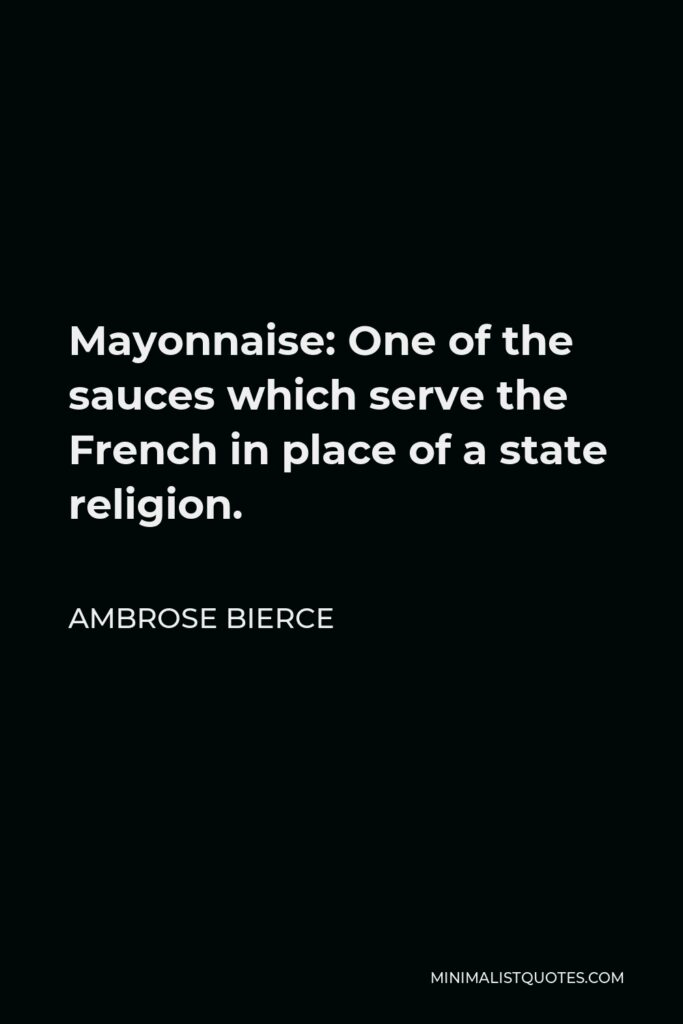

Mayonnaise: One of the sauces which serve the French in place of a state religion.
AMBROSE BIERCE -





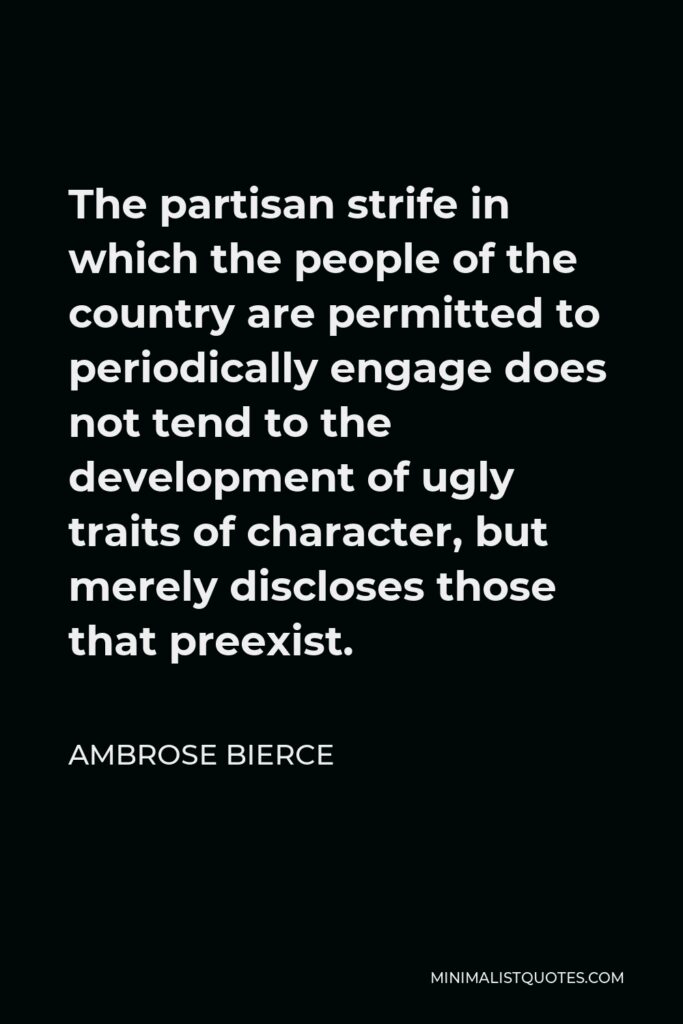

The partisan strife in which the people of the country are permitted to periodically engage does not tend to the development of ugly traits of character, but merely discloses those that preexist.
AMBROSE BIERCE -





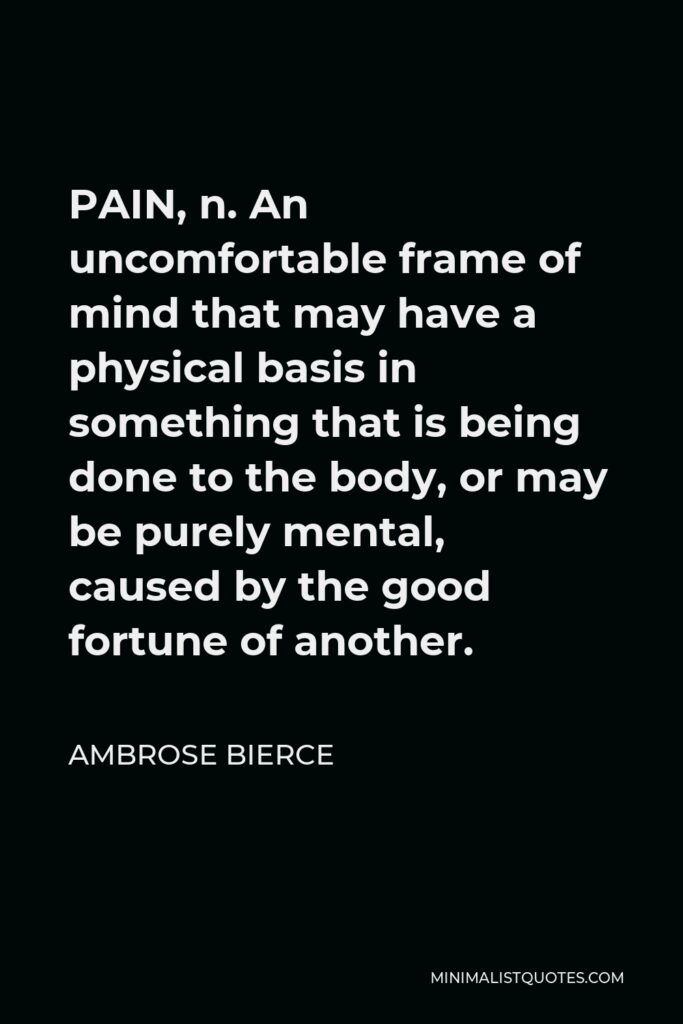

PAIN, n. An uncomfortable frame of mind that may have a physical basis in something that is being done to the body, or may be purely mental, caused by the good fortune of another.
AMBROSE BIERCE -





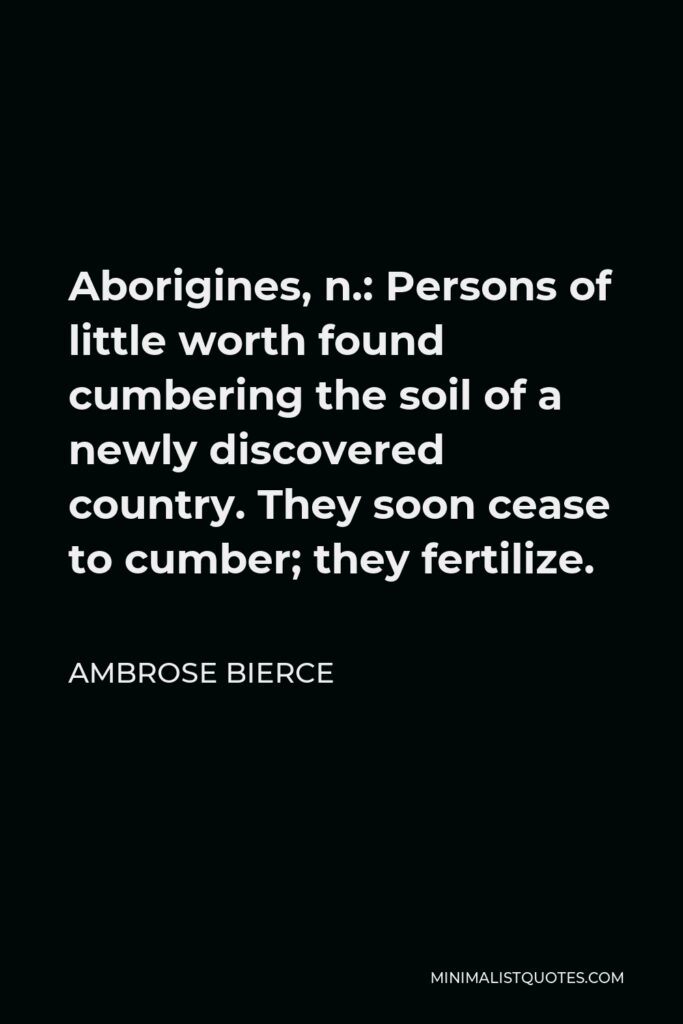

Aborigines, n.: Persons of little worth found cumbering the soil of a newly discovered country. They soon cease to cumber; they fertilize.
AMBROSE BIERCE -







Money. A blessing that is of no advantage to us excepting when we part with it.
AMBROSE BIERCE -





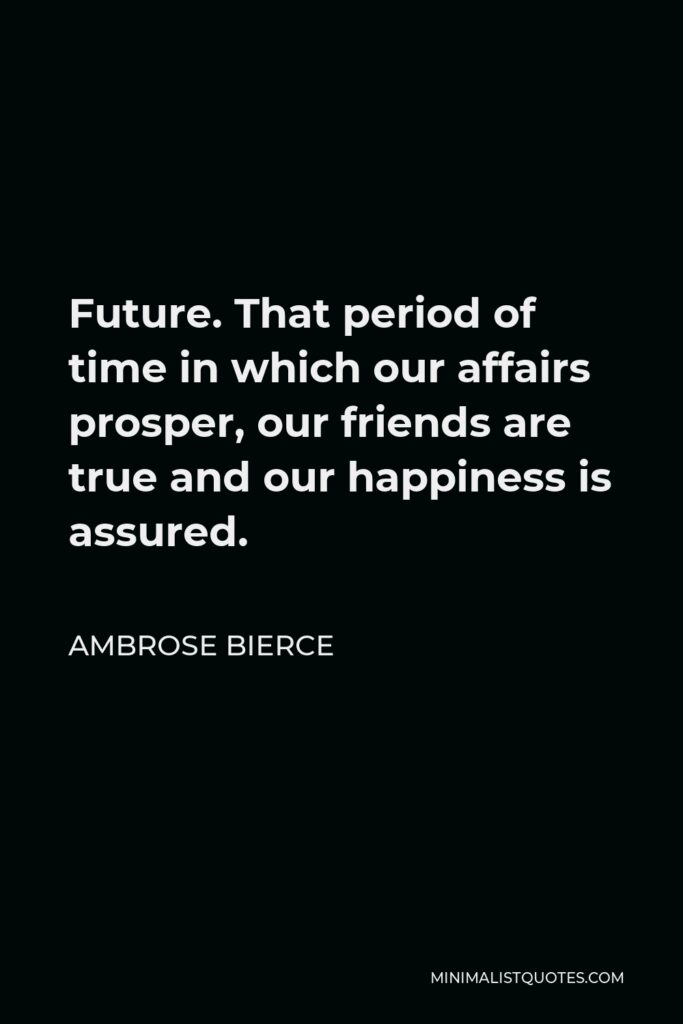

Future. That period of time in which our affairs prosper, our friends are true and our happiness is assured.
AMBROSE BIERCE -





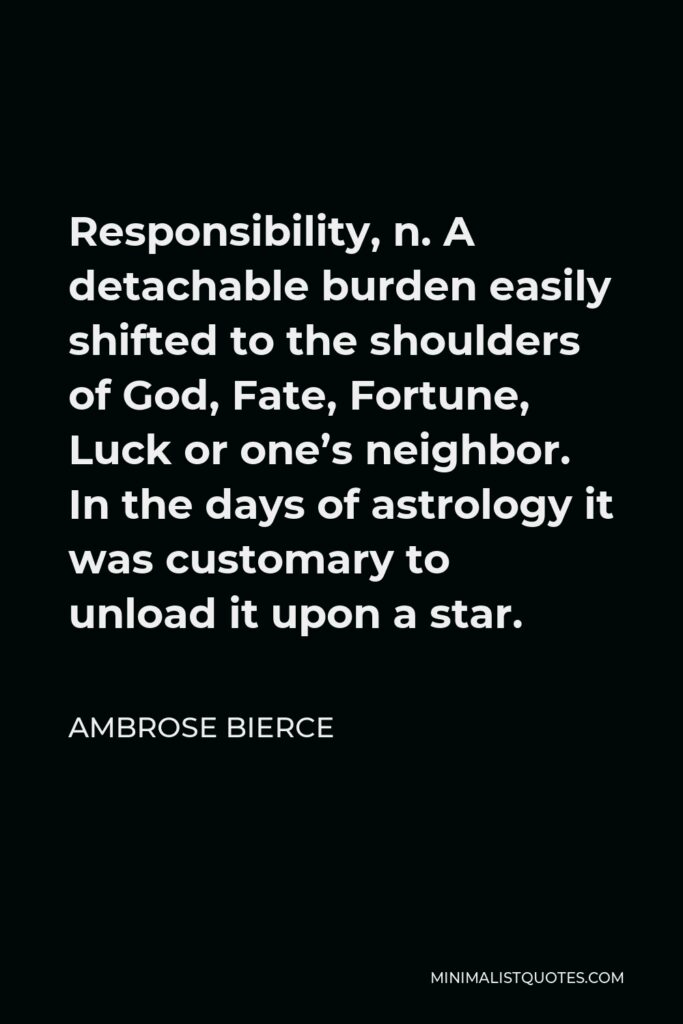

Responsibility, n. A detachable burden easily shifted to the shoulders of God, Fate, Fortune, Luck or one’s neighbor. In the days of astrology it was customary to unload it upon a star.
AMBROSE BIERCE -





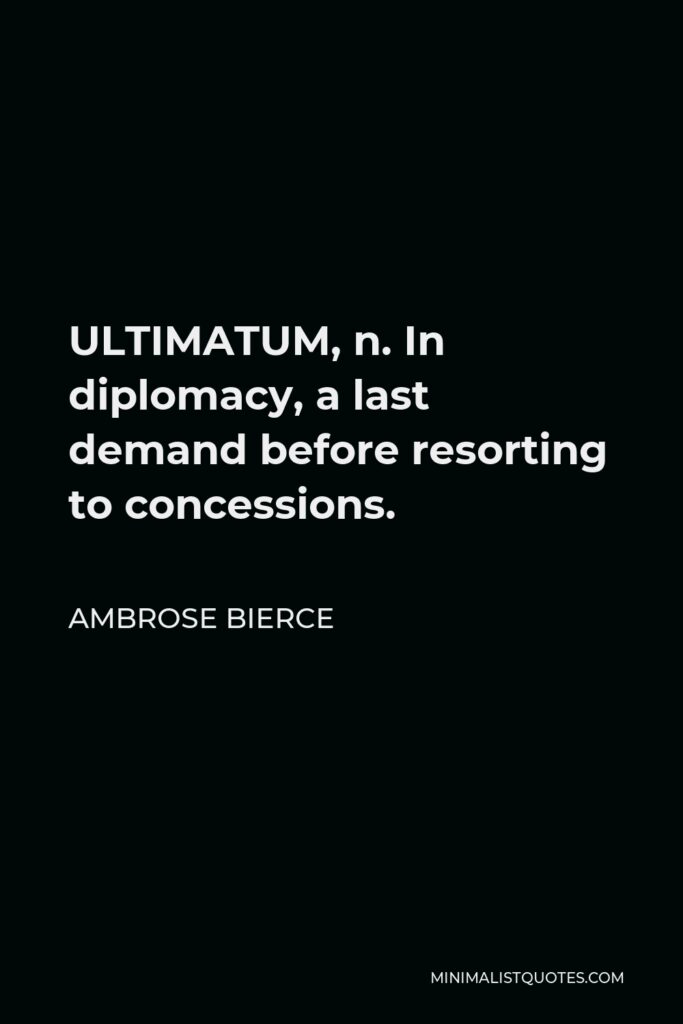

ULTIMATUM, n. In diplomacy, a last demand before resorting to concessions.
AMBROSE BIERCE -





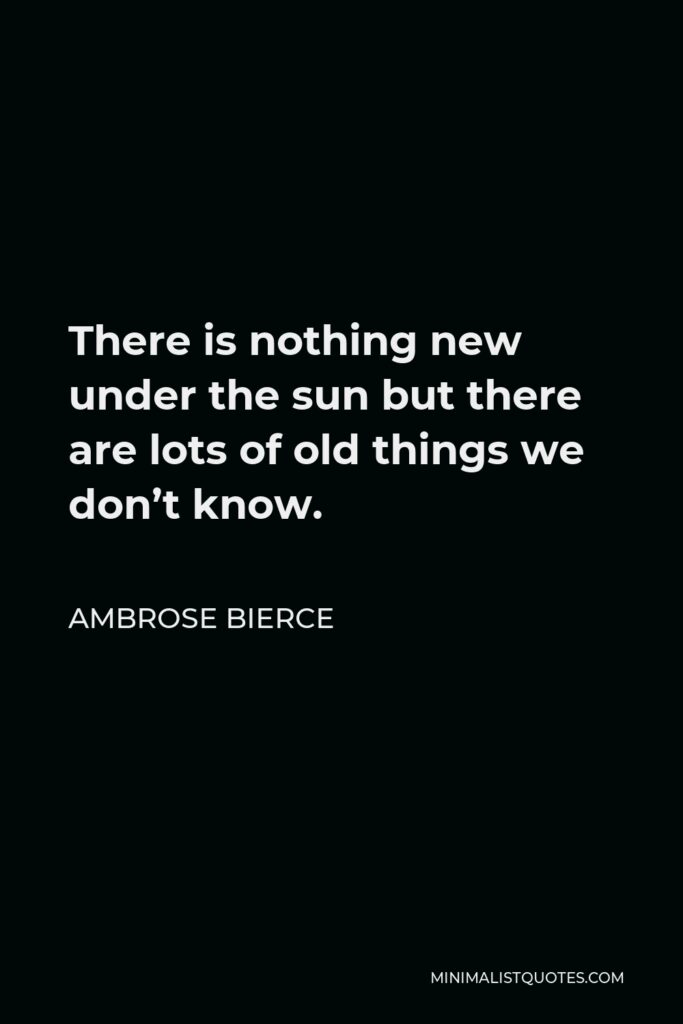

There is nothing new under the sun but there are lots of old things we don’t know.
AMBROSE BIERCE -





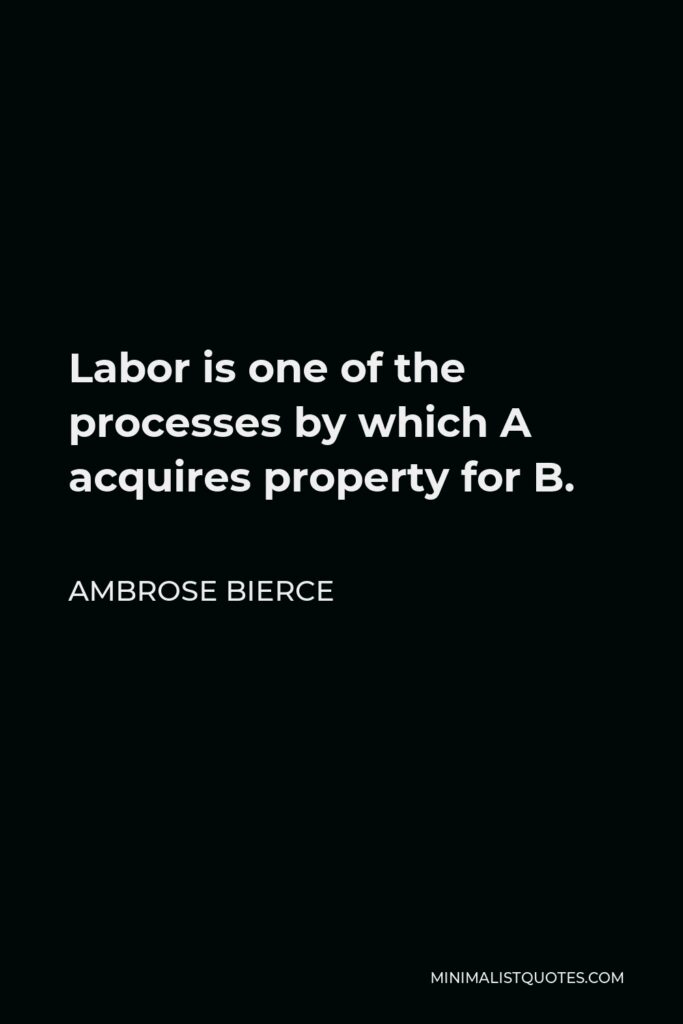

Labor is one of the processes by which A acquires property for B.
AMBROSE BIERCE -





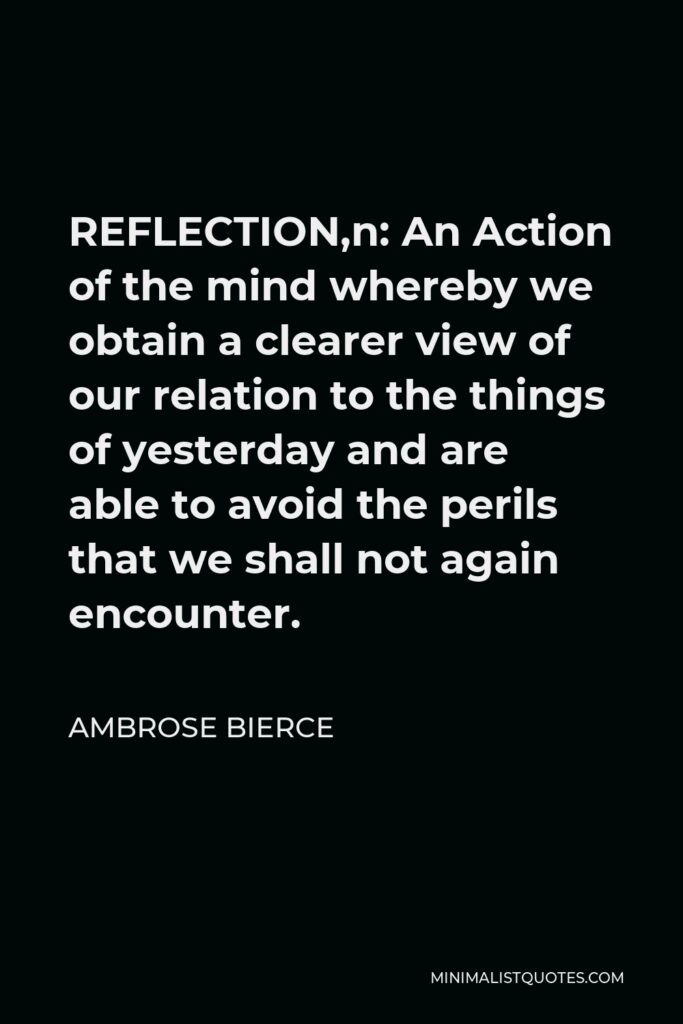

REFLECTION,n: An Action of the mind whereby we obtain a clearer view of our relation to the things of yesterday and are able to avoid the perils that we shall not again encounter.
AMBROSE BIERCE -





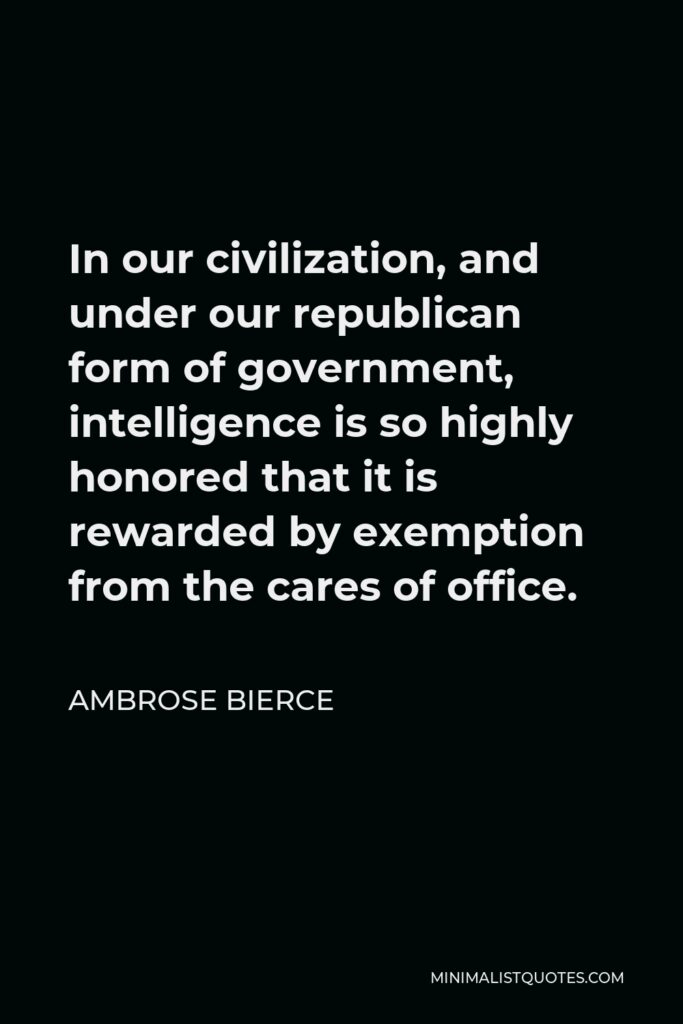

In our civilization, and under our republican form of government, intelligence is so highly honored that it is rewarded by exemption from the cares of office.
AMBROSE BIERCE -





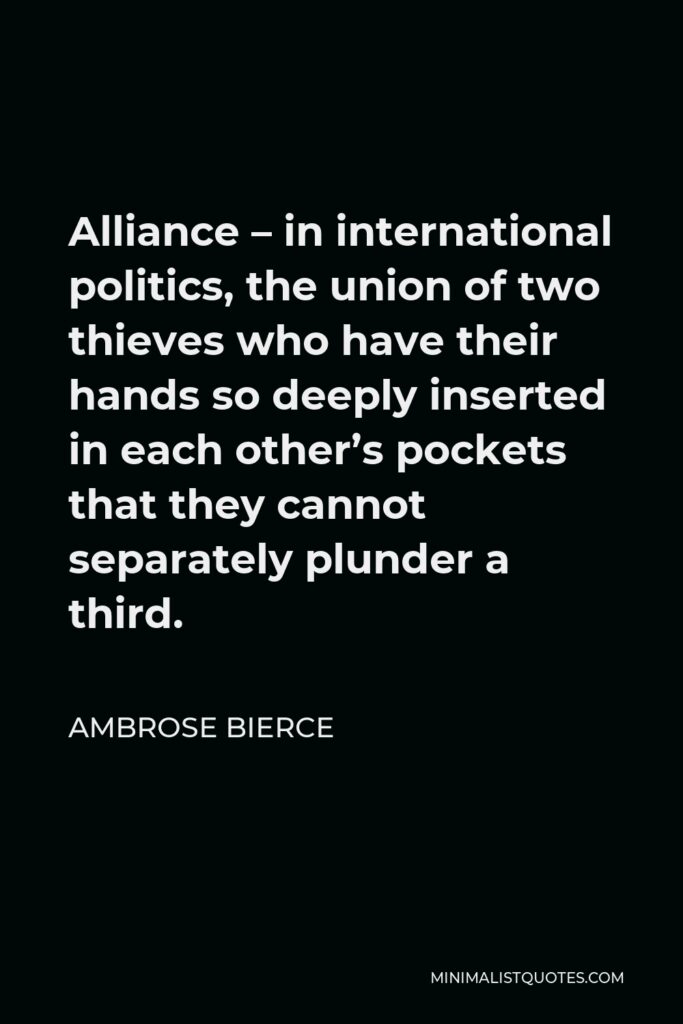

Alliance – in international politics, the union of two thieves who have their hands so deeply inserted in each other’s pockets that they cannot separately plunder a third.
AMBROSE BIERCE -







They say that hens do cackle loudest when there is nothing vital in the eggs they have laid.
AMBROSE BIERCE -







Laughter, n. An interior convulsion, producing a distortion of the features and accompanied by inarticulate noises. It is infectious and, though intermittent, incurable.
AMBROSE BIERCE








